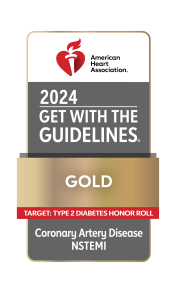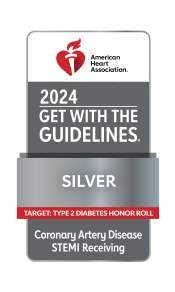Diagnosis
Diagnostic Heart Tests
An echocardiography tests for fluid around the heart (pericardial effusion), as well as blood clots (thrombus) inside the heart chambers. This diagnostic testing also evaluates the aorta and detects aneurysms, an abnormal enlargement of an artery.
Better known as an ECG or EKG, an echocardiography measures the size of the heart and will detect if the heart is enlarged, thickened (hypertrophied) or if it has been weakened by a heart attack or other heart condition or disease. A weak heart can be a sign of coronary artery disease, where a blockage in a blood vessel prevents enough blood flow to the heart muscle. Congenital heart disease (heart defects that are present from birth) also can be detected with echocardiography.
This diagnostic testing involves sound waves recording moving pictures of your heart to show how the heart muscle, valves and chambers are working. Echocardiography combined with the Doppler ultrasound measures blood flow in the heart so that “leaky” and blocked heart valves are visible to your doctor.
Services
Transthoracic Echocardiography – 2D and Color Flow Doppler
This is the most common type of echocardiography. A special gel is applied to the chest wall and then an ultrasound transducer sends sound signals into the chest. These sound waves bounce off the heart and send a signal back that generates a picture of the heart. This is a painless and noninvasive test.
Transesophageal Echocardiography (TEE)
This is a more invasive but extremely effective testing process. First, the throat is numbed with medication, then a flexible tube with a transducer is passed through the mouth, down the throat and into the stomach. This allows for very detailed pictures of the heart without the ribs and lungs getting in the way.
.jpg)

Contact Us
To schedule an appointment or for more information, please call 410-768-0919 or 410-760-5100.
- Testing is available Monday–Friday.




